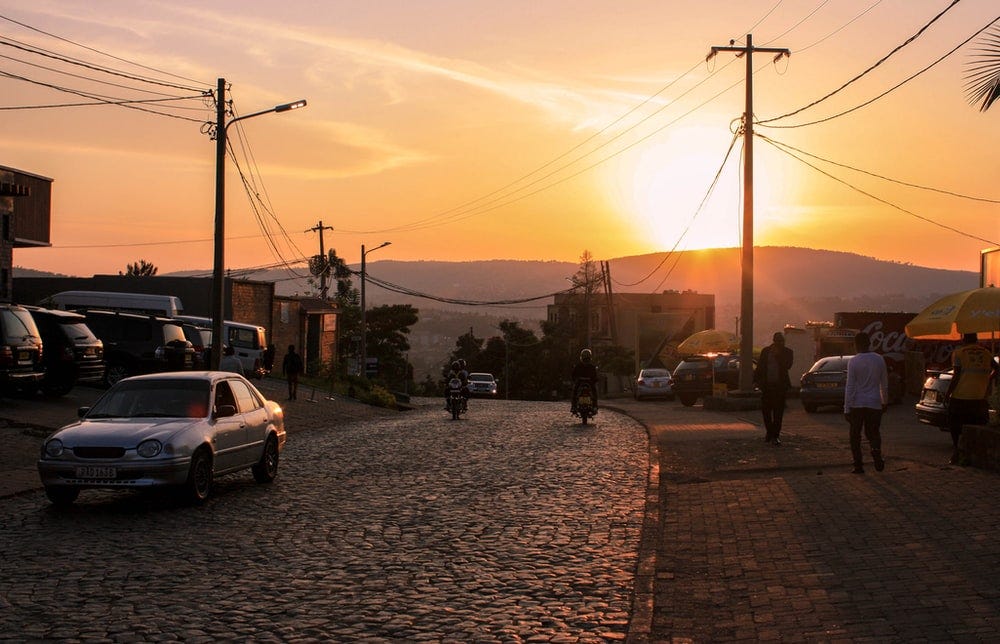Emerging Markets Daily - August 26
Iran-Saudi Talks and Middle East Security, S. Korea Raises Rates, Mubadala Eyes SE Asia Petroleum, China Evergrande Meltdown, Rwanda Energy Mix
The Top 5 Stories Shaping Emerging Markets from Global Media - August 26
Iran’s Talks with Saudi Arabia Help Engender a Mood of De-escalation in Middle East
Financial Times
“Secret talks between longtime foes. Letters exchanged between leaders who have been adversaries for years. Television networks typically critical of opposing regimes now moderating their language.”
“All have fed into a mood of de-escalation taking hold in the capitals of some of the Middle East’s perennially competing powers — one that would have been unimaginable 18 months ago in a region blighted by rivalries and sectarian divisions.”
“Arab officials put the tentative trend down to the confluence of the coronavirus pandemic, its devastating economic impact and the election of Joe Biden as US president. Together, these have combined to push regional leaders to recalibrate their foreign policies.”
“…Over the past decade, the UAE has pursued the Arab world’s most muscular foreign policy in its efforts to counter Islamist movements and Iran’s influence. But now Emirati officials talk of a shift to economic diplomacy and the UAE is pushing ahead with its efforts to improve relations with Turkey and Iran.” Andrew England reports
South Korea Becomes First Major Asian Economy to Raise Interest Rates
BBC
“The Bank of Korea increased its base rate of interest from a record low of 0.5% to 0.75%.”
“The move is aimed at helping curb the country's household debt and home prices, which soared in recent months.”
“Central banks around the world are trying to balance the impact of ongoing Covid-19 infections against economic risks such as high inflation.”
“It is the first time the Bank of Korea has raised its main interest rate for almost three years.” BBC News reports
Mubadala Petroleum Expanding to Southeast Asia
The National
“Abu Dhabi-based Mubadala Petroleum is planning to expand its operations in South-East Asia as it seeks to tap into growing demand for electricity in the region.”
"‘For the moment, ... most of the demand post-Covid-19 or growth rather will happen in the Asean region. You are talking about double-digit growth in demand for electricity,’ Mubadala Petroleum's chief operating officer Mazin Al Lamki told the Future Energy Asia conference that was held online on Wednesday.”
“The Association of South-East Asian Nations is a 10-member economic bloc comprising Brunei, Cambodia, Indonesia, Laos, Malaysia, Myanmar, the Philippines, Singapore, Thailand and Vietnam.”
“Mubadala Petroleum, a unit of Abu Dhabi’s strategic investment firm Mubadala Investment Company, is actively exploring and developing hydrocarbon assets in South-East Asia.” Jennifer Gnana reports.
China’s Evergrande EV Unit Loses $80 Billion in World’s Worst Stock Rout
Bloomberg
“Shares of China Evergrande Group’s electric vehicle unit are collapsing in Hong Kong, wiping about $80 billion from what was the property developer’s most valuable listed asset.”
“China Evergrande New Energy Vehicle Group Ltd. sank as much as 22% Thursday after its parent said the unit will post a net loss of 4.8 billion yuan ($740 million) for the first half. The EV business was worth about $87 billion at its April 16 peak, more than Ford Motor Co. and almost four times more valuable than China Evergrande itself at the time. Its shares are now down 92% since, the worst performance in the Bloomberg World Index and lagging even China’s tutoring stocks.” Sofia Horta e Costa reports
Could Rwanda's Energy Mix be a Model for the African continent? [Video]
CNN Marketplace Africa
“By using foreign investment and exploring greener technologies, Rwanda hopes to achieve its goal of providing electricity to its entire population by 2024.” CNN reports [5:36]
What we’re also reading…
Taliban Takeover Is a Boon for Cash-Strapped Iran
The Wall Street Journal
“Iran this week restarted fuel exports to Afghanistan that had been disrupted by fighting between the Taliban and forces under the now deposed Afghan government, traders in Tehran and former U.S. officials say, with the Taliban now providing critical dollars to the sanctions-crushed Iranian economy from its lucrative narcotics operations.”
“The burgeoning trade relationship between Tehran and the Taliban threatens to undermine key U.S. pressure campaigns against both.”
“Iran has been cut off from the global market for the greenback by U.S. sanctions, and the Taliban’s willingness to trade with their neighbor gives Iran rare access to U.S. dollars it needs to import essential goods and bolster its depreciated currency.”
“Meanwhile, the arrangement enables the Taliban, who are also cut off from trade and finance by international sanctions, to purchase basic commodities vital to keeping the ailing Afghan economy running.” Benoit Faucon and Ian Talley report
Attack of the Giant Rodents or Class War?
The Guardian
“Nordelta is Argentina’s most well-known gated community: an enclave of spacious homes for the rich amid a dreamy landscape of lakes and streams north of Buenos Aires.”
“But environmentalists question its very existence because it is built on the wetlands of the Paraná, the second most important river in South America after the Amazon.”
“Now, however, nature is fighting back against Nordelta’s well-heeled residents.”
“In recent weeks, the community has been invaded by capybaras, who have destroyed manicured lawns, bitten dogs and caused traffic accidents.”
“…These vast Paraná wetlands stretch from northern Argentina to the River Plate and the Atlantic Ocean, but have come under attack from urban sprawl as well as cattle and soy mega-farmers who are partly responsible for the wildfires that have destroyed vast areas.” Uki Goñi reports



